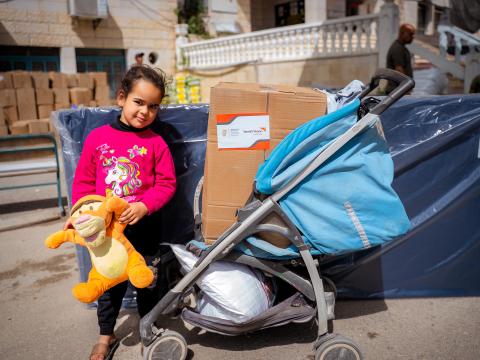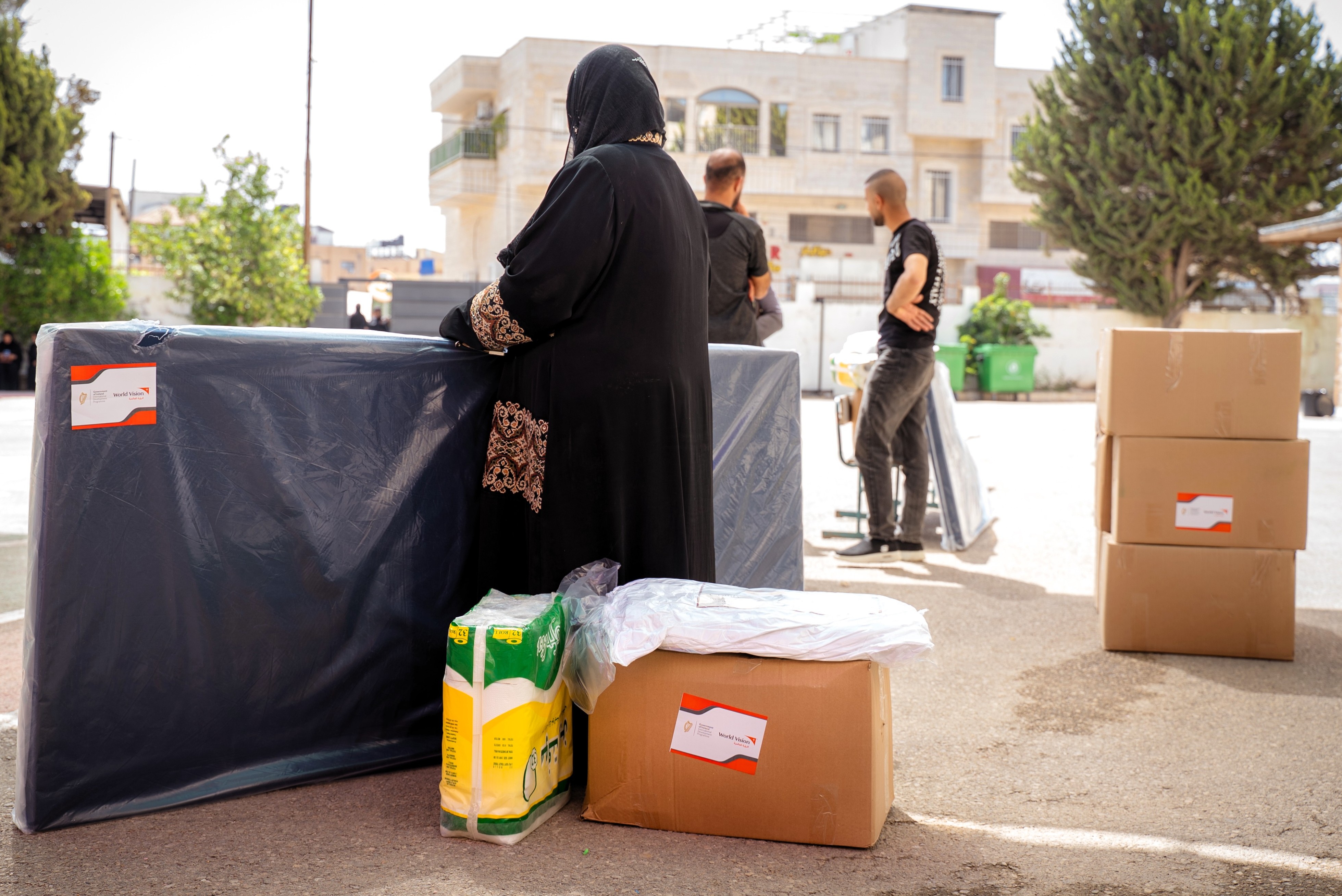When You Have Minutes to Leave Your Life Behind: Responding to Displacement in the West Bank

Suha, a 30-year-old mother from Tulkarem Refugee Camp located in the North of the West Bank in Tulkarem city, never imagined she would be forced to flee her home with nothing but a few clothes for her five-year-old daughter. But 4 months ago, after receiving a sudden order to leave her house, Suha, her husband, and their daughter had a few minutes to pack - leaving behind the life they had built.
Since January 2025, relentless military operations have devastated civilian infrastructure across several northern cities in the West Bank. Thousands of families have been ordered to leave, hundreds of homes have been destroyed, and dozens of schools forced to close. The destruction has displaced 44,000 people.
Before the displacement, life was stable. Suha’s husband worked as a builder, and Carmen had just started kindergarten. “Things were calm,” Suha recalls. “We had a routine, a home, and hope.”
The displacement was sudden and traumatic. When she later attempted to return to their home with her husband to retrieve essential belongings, they were shot at. “We had to run for our lives,” Suha says. “We left everything behind in the street.”
At first, the family took shelter in her in-laws’ already overcrowded home, which was also hosting another displaced family. Eventually, they moved to Suha’s parents’ house, where they now live in similarly cramped conditions. Her husband is currently unemployed due to the ongoing political and economic instability, and the family relies entirely on humanitarian aid.

Their first support came from World Vision, which provided non-food items (such as a mattress and blankets) and critical hygiene supplies. This assistance was part of the Rapid Response to Displaced and Conflict-Affected People project, implemented in partnership with World Vision Ireland and funded by Irish Aid. Suha’s is one of 835 families who have received essential supplies and food through the programme, offering a critical lifeline to those who have lost everything.
Despite the hardship, Suha tries to maintain a sense of normalcy forher daughter. But the emotional toll is heavy. Carmen often asks for simple things—like sweets, or new clothes they used to buy for Eid Al-Adha—but the family cannot afford them. “It breaks our hearts,” Suha says. “We feel ashamed to ask for help, but we have no other choice.”
Due to the economic difficulties of the family, Suha has not been able to register for Carmen back into kindergarten. Their future remains uncertain. “We are planning to stay with my parents until we can return home,” she says, “though we don’t know when—or if—that will be possible”.